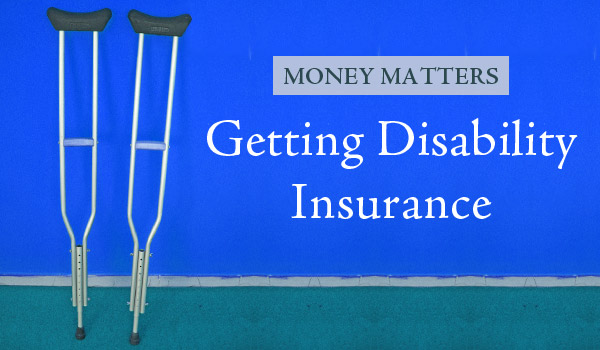Money Matters: Getting Disability Insurance
Cary, NC — “It will never happen to me.” That’s what a lot of us think. In reality, disabilities can and do happen. – to anyone – at any time. In fact, you’re three and a half times more likely to become disabled than you are to die prematurely.
What is Disability
What constitutes a disability? Generally, when you become too sick or hurt to work, you are disabled. Many disabilities are short-lived—a pulled muscle, a sprained ankle or a bout with the flu. These types of disabilities typically don’t interfere with your ability to continue working and providing for your family.
But what if you suffered a heart attack? Or had a serious car accident and had to spend an extended period of time in a hospital (or worse yet, never fully recovered)? What if you became gravely ill?
The financial implications of a disability can be disastrous. For instance, how would you make your house and car payments if you couldn’t work? Even if your employer offers a group disability plan to you, the coverage provided is often not enough. After taxes, most group plans only cover approximately 45% of your income! A separate, individual disability insurance policy can help you fill the gap and pay your expenses during a disability.
Three Things to Consider
When comparing individual disability income insurance policies, keep the following in mind:
- Definition of disability. It’s in your best interest to avoid disability policies that have an “any occupation” definition. These types of policies pay only if you are unable to perform any occupation that reasonably fits. Instead, look for a policy that considers you disabled if you cannot perform the duties of your regular occupation. This type of policy is called an “own occupation” policy.
- How long your disability benefits should last. This depends on your age, income and level of savings. Usually, the shortest benefit period is two years. Other policies pay for five years or to age 65. Many people purchase coverage that lasts until age 65. If you can’t afford age 65 coverage, buy the longest benefit period you can afford. Many companies will allow you to upgrade coverage if your health is good.
- How long you can wait to receive benefits. If your income stopped today, how long could you continue to pay your bills on your own? The answer to this question will help you determine how long of an “elimination period” you can handle. (The elimination period is the length of time after you become disabled before the policy begins to pay benefits). The longer the elimination period, the less expensive your policy will be.
With any type of insurance coverage, carefully research your options and work with a financial representative you know and trust.
————————————————————————————————-
Story by Raj Satsangi, Financial Services Representative, Princor Registered Representative, Principal Financial Group. Send him your questions via email. Photo by Christian Guthier.



